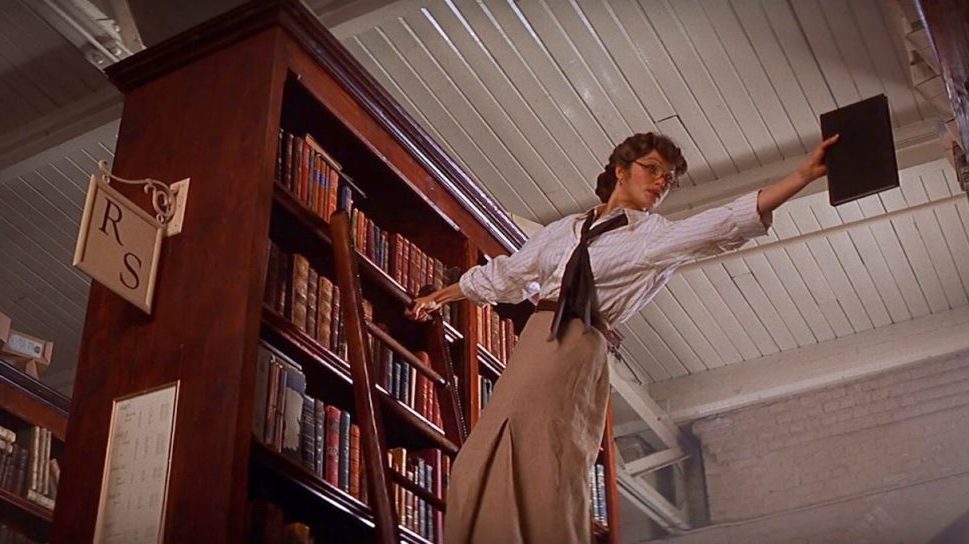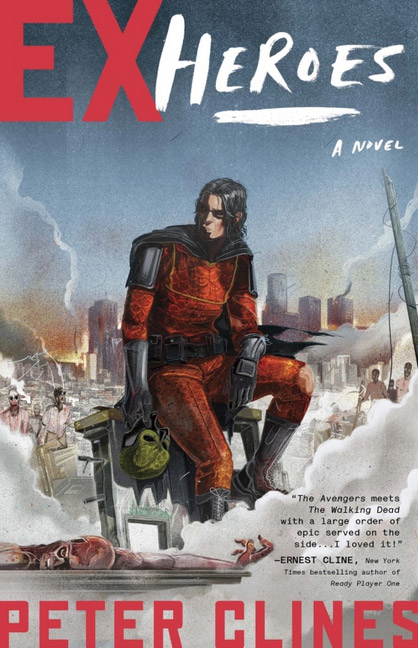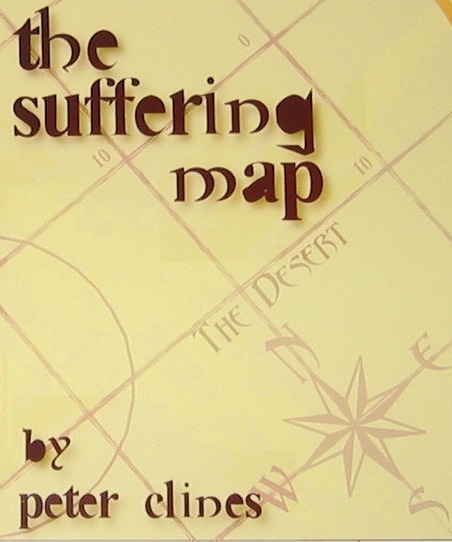Tomorrow’s another big birthday for me. I think Patton Oswalt called it “the double nickel” a few months back when he also hit said milestone. I’m probably going to spend it doing something silly. Maybe random toy shopping. Maybe playing games. I’m probably going to watch a Godzilla movie or two and try to keep up that tradition.
Anyway, I often try to mark the day by offering you some semi-useful thoughts on writing in general. More the whole big idea of writing and being a writer than the nutsy-boltsy stuff I tend to blather on about most of the time. And this is going to be one of those posts. Apologies if it’s a little long.
So, for my 55th birthday, here’s five things I wish I’d known at various points in my writing journey.
1) You’re never too young
For a long time I thought I wasn’t old enough to tell stories. I was writing well before I hit my teens, yeah, and even submitting some of it. But that was all just being young and stupid and not knowing any better. Once I started taking my writing seriously, I felt like I needed more experience—in just about every way possible—before anyone was going to give me any consideration. And I didn’t shake this feeling until well into my twenties. It took me a long time to believe my work was going to measure up to all these other folks.

What I discovered much later was that so many of those people I’d admired as writers hadn’t been much older than I was when they started out. Some of them had only been a few years older than me at that point. It’s not so much that they’d been drastically more experienced, they’d just been willing to take a few chances. Not wild, longshot risks—there’s still a wide swath of property between “brave” and “foolish”—but they decided to try rather than wait until they’d hit some self-imposed limitations.
So don’t rush to do something as soon as you can… but also don’t wait to hit some weird benchmark you read somewhere on the internet or just made up yourself.
2) Don’t worry about getting it perfect
I went through a long phase of trying to get everything perfect. Of trying to make it all, y’know, real writing. And I was usually trying to do it on the first try. I’d spend hours on each paragraph, trying to find the perfect phrasing, the perfect word, not moving on until I’d gotten things just right.
Of course, what this really meant was it was taking me ages to do anything. My first complete draft of The Suffering Map took actual years (plural) to get done. Because I was so wrapped up in what it should be like by the time it was done, I wasn’t acknowledging how many more steps there were before it was done.
It’s something a lot of folks have to get past, but the truth is… there’s going to be a second draft. I’ll get to clean and polish and, yes, pick better words. In fact, they’ll probably be much better because I’ve had time to think about them in context rather than obsessing over this single phrase in chapter three for an hour or so.
Which means for the first draft, I can just write. Not sure about that word? Just say “fast” for now and we’ll find the perfect word in the next draft. Not sure about her name? She’s “Phoebe” for now and if a better name comes to me I’ll start using it then. It took me years to realize this, but once I did my productivity probably quadrupled.
3) Finish things
For the longest time, the biggest thing holding me back was that I never finished anything. Which sounds silly but… there it is. All those early submissions I made to Marvel? I was sending in the first issue of what was clearly a multi-issue story. And in complete honesty, I had no real idea how the rest of it would go. A lot of the early “novels” I’ve mentioned here? Lizard Men From the Center of the Earth? All that Doctor Who and Boba Fett fanfic? The Werewolf Detective? The Trinity? None of them were ever completed. Still haven’t been. I’d just rocket from one thing to the next. Usually just writing the fun, cool parts before I got bored and moved on.

Weirdly enough, my first real, serious interest came from a completed script for Deep Space Nine, which got me half an hour in a room with Ron Moore, and then later another half hour or so with Hans Beimler. Later, when I actually finished a novel—The Suffering Map—I started getting interest from agents.
Yeah, some of the fun goes out of writing when I made that jump from “writing the fun parts” to “writing all of it.” But it was also a huge moment when I realized I’d actually finished an entire, start-to-finish book manuscript—something Drusilla Campbell once told me less than one out of a hundred people who call themselves writers ever do.
And, off my own experience, I’d guess it’s something 99 out of a hundred agents and editors want to see.
4) You’re never too old
Every now and then someone starts talking about ageism in publishing. Or Hollywood. Or comics. A friend’s dad once told us, right after college, that if you haven’t made your mark by age 25 it was never going to happen. End of story.
And it’s easy to see why people feel this way. Society loves youth (sometimes, but that’s another discussion). You don’t hear about a lot of forty year old breakout stars. Forbes doesn’t do a “Sixty under Sixty” list. And yeah… publishers aren’t always as eager to publicize their *cough* more mature writers.
But the simple truth is, there are countless stories out there of people over the age of twenty-five writing their first book or making their first movie and finding success. I sold my first novel at 39 and it didn’t see print until just before I turned 41. This keeps happening, even as people say it doesn’t happen. I mean, just think about it. Can you honestly picture a publisher saying “Damn, this is the most page-turning, uplifting manuscript I’ve ever read and we’ll sell a million copies, easy… but the author’s forty-three.”
I think—and this is just me spitballing with a bit of evidence—that a lot of ageism complaints come from people who aren’t willing to change or adapt. “This is how we did it thirty years ago and it worked just fine then!” When I used to read scripts, I got some that were clearly very old scripts that had gotten a fresh coat of paint to update them. But often this “update” made it clear the screenwriter didn’t understand a lot of the terms they were using and that they were… well, old.
(seriously, how do you not know how an iPod works?)
Look, I’m minutes away from turning whatever-that-double-number-is years old. I grew up in a very different world than most of you reading this. Different views and values. Different technologies. And very different ways of telling stories. I’m trying hard to be better when it comes to writing the world as it is, not as it was—in so many ways. It’s not about whether I can do it, or if anyone will let me do it–it’s about whether I can learn to do it or not. Am I willing to change and grow, or do I want to keep insisting it’s 1988 and complaining that nobody else understands how things should work?
5) Do it because you love it
This may feel obvious, but I honestly couldn’t tell you how many folks I’ve met who look at writing for all the wrong reasons. They think it’ll be easy. That they’ll get rich quick. That it’ll get them invited to all the cool parties. They think it’ll get them a movie/ streaming deal. I’m talking probably hundreds of people I’ve personally been in the presence of.
On a similar note, there’s a lot of people who write in certain genres or formats because of… well, all those above things. It’s not what they’re interested in, but scribbling out a romance will be easy, right? First person is what everyone’s buying. Fantasy means I can just make it all up—it doesn’t have to make sense. Thrillers are where the big money is right now.
I tried chasing the boom for a while. I tweaked my writing to what I thought it needed to be to succeed in this genre or that style. And doing this led me down a lot of dead ends. Stories I didn’t enjoy writing. Stories I wasn’t all that excited by. Stories that went nowhere.

Again, the response to my work got a lot better when it was my work. The kind of weird, twisty stories I liked. The kind of characters I liked. All written in the style I enjoyed writing in. Because I really, truly believe readers can tell how the author felt about a story. They know if I had fun writing this or not. If I was excited about writing it, and about them reading it.
So don’t worry about meeting someone else’s expectations or about what’s hot right now. Write the things you want to write. Tell your stories the way you want to tell them. They’ll be stronger, they’ll be more authentic, and that love you have for them will show through.
Anyway, that’s all the old man birthday wisdom I’ve got for you. Hope some of it was useful or encouraging. Or at least entertaining. All birthday thanks can be given in the form of action figures or rum. If you don’t know how to get action figures or rum to me, you don’t need to worry about it (but thanks of the thoughts). Please don’t sing. I really can’t stand that.
Next time, I’ll probably talk about some of the people I’ll be talking with at StokerCon tonight.
Until then, go write.




